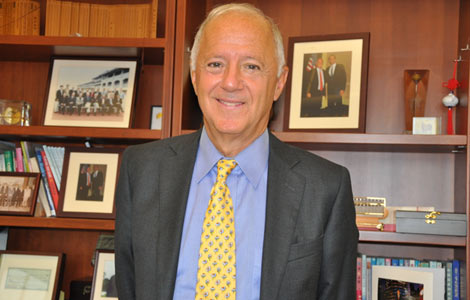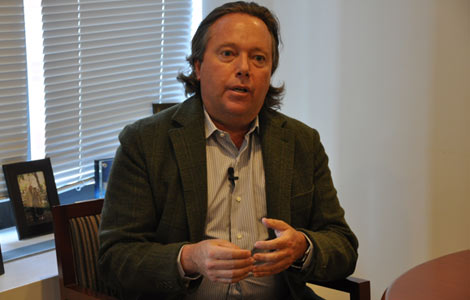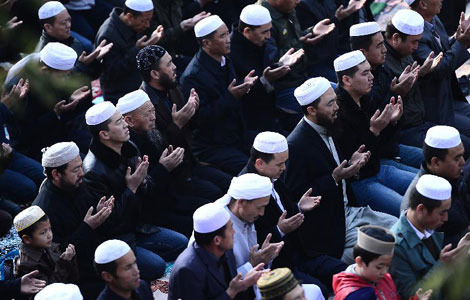A country at the opera
Updated: 2013-10-18 00:23
By Raymond Zhou (China Daily)
|
||||||||
As bicentennial celebrations of the opera world's twin titans build up to a crescendo, Raymond Zhou takes time to look back at how far China has come in embracing Wagner and Verdi in our musical life.
|
 |
|
Soprano Wang Wei plays Brunnhilde in Die Walkure. Provided to China Daily |
Wagner in China
|
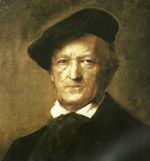 |
For the most part, Richard Wagner did not receive advocacy in China by music makers, but rather by men of letters. Renowned poet Xu Zhimo published the following lines in Shanghai in 1923: "Is it the power of gods or magic / That whips up thunder and lightning / Storms and wails / Waves of desperate sea… / Emotions, rage, generosity and melancholia / Are stirred up by strings and brass / Into a music drama inimitable / By Wagner, a pioneer in the sound and the heart." It's not among Xu's better-known works, but who else in China had enjoyed Wagner in a hall as he probably did while studying in England.
In the 1940s, some Chinese disciples of Nietzsche mentioned Wagner and his Ring in their treatises, but few understood what they were talking about. For the first three decades of New China, Wagner was non-existent even in the teachings of the nation's music academies because he was not one of those artists endorsed by Marxist authorities. When Yan Baoyu, a scholar educated in Germany and exposed to Wagner's music, was invited in 1980 to submit an entry on this giant of German culture to a new Chinese encyclopedia, he was allowed to touch on only Wagner's literary writings, but not his music.
In 1987, a Wagner biography in Chinese translation was published. Ten years later, the Chinese librettos of all his operas came out in a two-volume set, edited by Liu Xuefeng, who has since gone on to be a major apostle for Wagner in China. Chen Weizheng, a Chinese emigrant in Germany, has been attending the Bayreuth Festival for two decades, filing reports to the Chinese press and inviting Chinese enthusiasts to join him.
Wagner's music did not start seriously trickling into the Chinese mainland until the 1990s. The first complete opera by Wagner to find its way onto a Chinese stage was The Flying Dutchman, which was presented in Shanghai Grand Theater in 1999. Conductor Tang Muhai said he chose this opera because it has traces of Italian operas, which would make it more accessible to the Chinese audience.
Tang, who studied music in Munich and worked in Berlin, had a dream of staging all four operas of the Ring Cycle in China. But instead of fulfilling this impossible mission, he had to make do with more manageable projects of playing overtures and segments from Wagner's operas.
Where Tang failed, Yu Long, artistic director of the Beijing Music Festival, made it happen. In 2005, he brought Der Ring des Nibelungen to Beijing's Poly Theater. It was a four-night affair, produced by the Nuremberg State Theater with 240 performers and 12 containers of sets, props and costumes. "It was a milestone in China's music history," said Ke Hui, vice-president of the China branch of Richard Wagner Verband International, a fan club of Wagner lovers.
BMF followed up this coup with Tannhauser in 2008, also a German import, and this year, Parsifal. Beijing also saw a concert version of Tristan und Isolde in 2007.
In 2010, Shanghai Grand Theater staged two full cycles of the Ring, this time a production of the Cologne Opera under the baton of Markus Stenz. It was made possible by Chinese impresario Wu Jiatong who had been working in cross-cultural exchange, but mostly endeavors of a much smaller scale. The performances were broadcast live on local TV, but it was doubtful many were converted into Wagnerites. For most performances, including the 2005 Ring in Beijing, the audience would start thinning by half time.
Ke Hui reveals that China's Wagner Society has some 1,000 members. Sure, not every devotee to Wagner would register with his club, but he estimates that diehard fans in China are in the low thousands. The funny thing is, most of these people are not professional musicians, but white-collar workers who happen to be attracted to his music. They tend to be more knowledgeable than academics and would often help out theaters with promotional materials, libretto translation, etc. "Pros are usually intimidated by Wagner," he notes.
One pro who dares to pick up the gauntlet is soprano Wang Wei, who has in recent years taken on Elisabeth in Tannhauser and Brunnhilde in Die Walkure. Ke says Wang is still far behind the international standard of excellence for a Wagnerian, but she is turning a lot of heads — and ears. Asian singers often excel in Puccini and Mozart, but it is not easy to pull off the task of singing a major Wagner role.
The National Center for the Performing Arts, the egg-shaped national theater, since opening in late 2007, has embarked on an ambitious enterprise of producing lavish opera productions. Its first outing in Wagner is The Flying Dutchman — with such state-of-the-art stagecraft that people compared it to The Pirates of the Caribbean. This and the subsequent Lohengrin filled the house but divided critics. It is unclear how many neophytes were converted into Wagner aficionados.
With imports and self-productions, nine of the 10 "mature" operas in the Wagner canon have graced the Chinese stage, leaving only Die Meistersinger von Nurnberg. Of this year's offerings, Parsifal is a China premiere and is the most anticipated by many local Wagnerites. As for a self-production of the Ring, Ke says: "It's gonna happen within five years with NCPA. But they should probably do the tetralogy one opera at a time."

 Victoria Beckham S/S 2014 presented during NYFW
Victoria Beckham S/S 2014 presented during NYFW
 'Despicable' minions upset Depp's 'Lone Ranger' at box office
'Despicable' minions upset Depp's 'Lone Ranger' at box office
 'Taken 2' grabs movie box office crown
'Taken 2' grabs movie box office crown
 Rihanna's 'Diamonds' tops UK pop chart
Rihanna's 'Diamonds' tops UK pop chart
 Fans get look at vintage Rolling Stones
Fans get look at vintage Rolling Stones
 Celebrities attend Power of Women event
Celebrities attend Power of Women event
 Ang Lee breaks 'every rule' to make unlikely new Life of Pi film
Ang Lee breaks 'every rule' to make unlikely new Life of Pi film
 Rihanna almost thrown out of nightclub
Rihanna almost thrown out of nightclub
Most Viewed
Editor's Picks
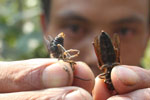
|

|

|

|

|

|
Today's Top News
US not budging on its arms restrictions on China
Can cranberries catch on in China?
Asia-Pacific pays executives world's highest salaries
US debt deal temporary fix
China is No 1 oil importer
Millennials worried about finances
Elderly group sorry about roles in turmoil
Investigation to diagnose nation's TCM resources
US Weekly

|

|
